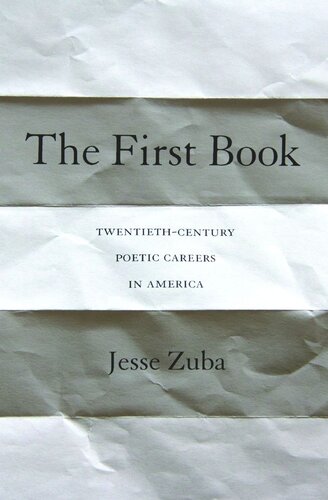

Most ebook files are in PDF format, so you can easily read them using various software such as Foxit Reader or directly on the Google Chrome browser.
Some ebook files are released by publishers in other formats such as .awz, .mobi, .epub, .fb2, etc. You may need to install specific software to read these formats on mobile/PC, such as Calibre.
Please read the tutorial at this link: https://ebookbell.com/faq
We offer FREE conversion to the popular formats you request; however, this may take some time. Therefore, right after payment, please email us, and we will try to provide the service as quickly as possible.
For some exceptional file formats or broken links (if any), please refrain from opening any disputes. Instead, email us first, and we will try to assist within a maximum of 6 hours.
EbookBell Team

5.0
110 reviews"We have many poets of the First Book," the poet and critic Louis Simpson remarked in 1957, describing a sense that the debut poetry collection not only launched the contemporary poetic career but also had come to define it. Surveying American poetry over the past hundred years, The First Book explores the emergence of the poetic debut as a unique literary production with its own tradition, conventions, and dynamic role in the literary market. Through new readings of poets ranging from Wallace Stevens and Marianne Moore to John Ashbery and Louise Glück, Jesse Zuba illuminates the importance of the first book in twentieth-century American literary culture, which involved complex struggles for legitimacy on the part of poets, critics, and publishers alike.
Zuba investigates poets' diverse responses to the question of how to launch a career in an increasingly professionalized literary scene that threatened the authenticity of the poetic calling. He shows how modernist debuts evoke markedly idiosyncratic paths, while postwar first books evoke trajectories that balance professional imperatives with traditional literary ideals. Debut titles ranging from Simpson's The Arrivistes to Ken Chen's Juvenilia stress the strikingly pervasive theme of beginning, accommodating a new demand for career development even as it distances the poets from that demand.
Combining literary analysis with cultural history, The First Book will interest scholars and students of twentieth-century literature as well as readers and writers of poetry.